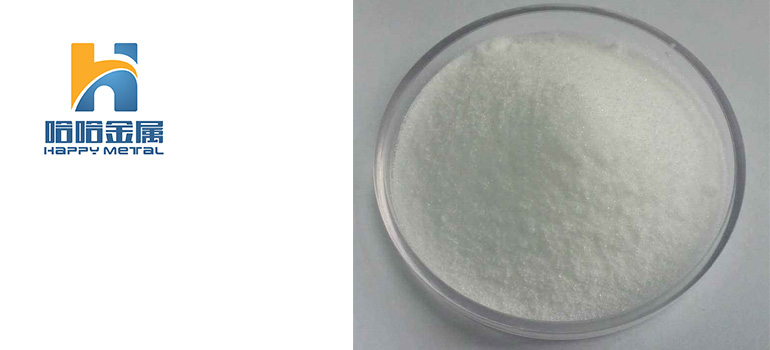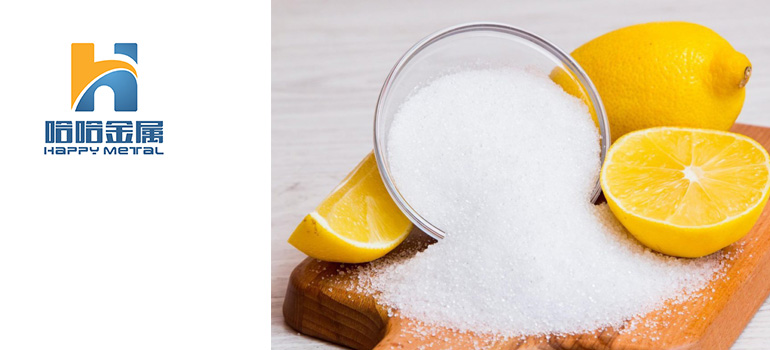Summary:
Choosing the Right Citric Acid: Monohydrate vs Anhydrous Comparison
What is Citric Acid?
Citric Acid Monohydrate: Benefits and Uses
Citric Acid Anhydrous: Advantages and Applications
Comparing Monohydrate and Anhydrous Forms
Selecting the Right Citric Acid for Your Need
Citric acid is a versatile compound widely used in various industries and everyday products. Understanding the different types of citric acid available in the market can help you make informed decisions for your specific needs.
What is Citric Acid?

Citric acid is a naturally occurring organic acid that is found in citrus fruits such as lemons, oranges, limes, and grapefruits. It’s a weak acid with a sour taste, which makes it a common ingredient in food and beverages, providing a tart flavor. Beyond its culinary applications, citric acid is also widely used in various industries for its acidity, chelating properties, and ability to enhance certain chemical reactions.
In addition to its role as a flavoring agent, citric acid serves several functions in food preservation and processing. It acts as a natural preservative, helping to extend the shelf life of packaged foods by inhibiting the growth of bacteria, molds, and yeasts. Citric acid also functions as an acidulant, adjusting the acidity of foods and beverages to enhance flavor, improve texture, and prevent discoloration.
Outside of the food industry, citric acid is employed in pharmaceuticals, cosmetics, household cleaners, and industrial applications. Its chelating properties make it useful in removing mineral deposits and scaling in cleaning products, while its acidity contributes to the effectiveness of personal care products like bath bombs and skin care formulations.
Overall, citric acid plays a crucial role in numerous aspects of daily life, from enhancing the taste of foods and beverages to facilitating various chemical processes in diverse industries.
Citric Acid Monohydrate: Benefits and Uses
Citric acid monohydrate, characterized by its crystalline structure and presence of one molecule of water per citric acid molecule, offers a range of benefits and finds diverse applications across various industries. Let’s explore its advantages and uses:
Benefits of Citric Acid Monohydrate:
Versatility:
Citric acid monohydrate serves as a multifunctional ingredient, fulfilling roles such as acidity regulator, flavor enhancer, and preservative in food and beverage formulations.
Natural Origin:
Derived from citrus fruits, citric acid monohydrate is a naturally occurring compound, making it a preferred choice for manufacturers seeking natural ingredients to meet consumer demands for clean-label products.
Acidulant Properties:
As an acidulant, citric acid monohydrate imparts a tart taste to foods and beverages, balancing sweetness and enhancing overall flavor profile. It also contributes to pH adjustment and preservation in food products.
Chelating Agent:
Citric acid monohydrate exhibits chelating properties, enabling it to bind to metal ions and prevent oxidation or discoloration in processed foods and beverages. This property is particularly beneficial in food preservation and quality maintenance.
Uses of Citric Acid Monohydrate:
Food and Beverage Industry:
Citric acid monohydrate is extensively utilized in the food and beverage industry as a flavoring agent, acidulant, and preservative. It enhances the taste of carbonated drinks, fruit-flavored beverages, jams, jellies, and confectionery products.
Its chelating properties also make it valuable in preventing enzymatic browning in fruits and vegetables and stabilizing colors in processed foods.
Pharmaceutical Applications:
In the pharmaceutical sector, citric acid monohydrate serves as an excipient in tablet formulations, aiding in drug dissolution and providing acidity adjustment in oral solutions and syrups.
Household Products:
Citric acid monohydrate is a common ingredient in household cleaners, detergents, and descalers due to its ability to remove mineral deposits, lime scale, and soap scum effectively.
Cosmetics and Personal Care:
It’s also found in cosmetics and personal care products such as shampoos, soaps, and skincare formulations, where it functions as a pH adjuster, chelating agent, and preservative.
Citric acid monohydrate’s wide-ranging benefits and applications underscore its importance as a versatile ingredient in various industries, contributing to product quality, functionality, and consumer satisfaction.
Citric Acid Anhydrous: Advantages and Applications
Citric acid anhydrous, distinguished by its powdered form and absence of water molecules, offers several advantages and serves numerous applications across diverse industries. Let’s explore its advantages and uses:
Advantages of Citric Acid Anhydrous:
Water-Free Composition:
Citric acid anhydrous contains no water molecules, providing manufacturers with precise control over the water content in formulations. This characteristic is advantageous in applications where water sensitivity or specific water-to-solids ratios are critical.
Enhanced Stability:
The absence of water in citric acid anhydrous contributes to its improved stability and extended shelf life compared to its monohydrate counterpart. This stability is beneficial in maintaining product quality and performance over time.
Reduced Hygroscopicity:
Anhydrous citric acid exhibits lower hygroscopicity, meaning it has less tendency to absorb moisture from the environment compared to citric acid monohydrate. This property enhances its handling and storage characteristics in certain applications.
Consistency in Formulation:
Citric acid anhydrous offers consistent performance in formulations due to its uniform composition and controlled water content. This consistency facilitates reproducible product outcomes and process efficiency in manufacturing.
Applications of Citric Acid Anhydrous:
Pharmaceutical Formulations:
Anhydrous citric acid finds application as an excipient in pharmaceutical formulations, particularly in tablets and oral powders. Its water-free nature aids in achieving desired drug delivery profiles and ensures stability during storage.
Nutraceutical Products:
In the nutraceutical industry, citric acid anhydrous serves as a pH adjuster and flavoring agent in dietary supplements, powdered beverages, and effervescent formulations. Its controlled moisture content is critical for maintaining product integrity and stability.
Industrial Processes:
Anhydrous citric acid is utilized in industrial processes such as water treatment, metal cleaning, and surface finishing. Its chelating properties enable it to bind to metal ions, facilitating scale removal, corrosion inhibition, and surface preparation.
Personal Care and Cosmetics:
It’s also incorporated into personal care and cosmetic products, including bath bombs, exfoliating scrubs, and skin cleansers, where it functions as a pH adjuster, chelating agent, and preservative.
Food Applications:
While less common than citric acid monohydrate in food applications, anhydrous citric acid may be used in specialized formulations where precise control over water content is necessary, such as certain bakery products, dry mixes, and powdered beverages.
The unique properties and versatile applications of citric acid anhydrous make it an essential ingredient in various industries, contributing to product quality, performance, and innovation.
Comparing Monohydrate and Anhydrous Forms
When comparing citric acid monohydrate and anhydrous forms, several factors come into play, including their physical properties, applications, and suitability for specific purposes. Let’s explore the differences between these two forms:
Physical Properties:
Citric Acid Monohydrate:
Crystalline Structure: Monohydrate citric acid typically appears as white, translucent crystals due to the presence of one water molecule per citric acid molecule.
Hygroscopic Nature: Monohydrate citric acid exhibits some degree of hygroscopicity, meaning it can absorb moisture from the environment, affecting its handling and storage.
Citric Acid Anhydrous:
Powdered Form: Anhydrous citric acid is usually found in a fine, powdered form rather than crystalline, as it lacks water molecules.
Lower Hygroscopicity: Anhydrous citric acid has lower hygroscopicity compared to the monohydrate form, making it less prone to moisture absorption and clumping.
Applications:
Citric Acid Monohydrate:
Food and Beverage Industry: Monohydrate citric acid is extensively used as an acidulant, flavoring agent, and preservative in various food and beverage products.
Pharmaceutical Applications: It finds applications in pharmaceutical formulations, particularly in oral solutions, syrups, and effervescent tablets.
Citric Acid Anhydrous:
Pharmaceutical Formulations: Anhydrous citric acid is preferred in pharmaceutical applications where precise control over water content is critical for stability and drug delivery.
Industrial Processes: It’s utilized in industrial processes such as water treatment and metal cleaning, where controlled moisture levels are essential.
Stability and Shelf Life:
Citric Acid Monohydrate:
Stability: Monohydrate citric acid may be more prone to degradation over time due to its water content, which can promote hydrolysis and microbial growth.
Shelf Life: While stable under proper storage conditions, the shelf life of monohydrate citric acid may be shorter compared to the anhydrous form.
Citric Acid Anhydrous:
Stability: Anhydrous citric acid offers enhanced stability and longer shelf life due to its water-free composition, minimizing the risk of degradation and microbial contamination.
Suitability for Dry Applications: Its lower hygroscopicity makes anhydrous citric acid suitable for dry applications where moisture sensitivity is a concern.
Cost and Availability:
Citric Acid Monohydrate:
Cost: Monohydrate citric acid may be more cost-effective and readily available in the market due to its widespread use and production.
Versatility: Its versatility and suitability for a wide range of applications make monohydrate citric acid a popular choice among manufacturers.
Citric Acid Anhydrous:
Cost Considerations: Anhydrous citric acid may be slightly more expensive than the monohydrate form due to its specialized production process and lower moisture content.
Specific Applications: While less commonly used than monohydrate, anhydrous citric acid is preferred in applications requiring precise moisture control and stability.
In summary, the choice between citric acid monohydrate and anhydrous forms depends on factors such as application requirements, stability considerations, and cost considerations. Understanding the differences between these two forms is crucial for selecting the most suitable option for specific needs in various industries.
Selecting the Right Citric Acid for Your Needs
Selecting the right citric acid for your specific needs involves considering several factors, including the intended application, desired properties, and processing requirements. Here’s a guide to help you make an informed decision:
Application Requirements:
Food and Beverage Industry:
If you’re formulating food and beverages requiring a balance of acidity, flavor enhancement, and preservation, citric acid monohydrate may be suitable due to its widespread use as an acidulant and flavoring agent.
Pharmaceutical Formulations:
For pharmaceutical applications where precise control over water content and stability is critical, consider using citric acid anhydrous to ensure consistent drug delivery and formulation performance.
Industrial Processes:
In industrial processes such as water treatment and metal cleaning, select the citric acid form based on moisture sensitivity, chelating properties, and compatibility with specific processing conditions.
Desired Properties:
Hygroscopicity:
Evaluate the hygroscopic nature of citric acid monohydrate and anhydrous forms based on your formulation’s moisture sensitivity and handling requirements.
Stability:
Consider the stability and shelf life implications of each citric acid form, especially in long-term storage or high-temperature processing environments.
Processing Considerations:
Compatibility:
Ensure that the selected citric acid form is compatible with other ingredients, processing equipment, and manufacturing processes involved in your application.
Ease of Handling:
Choose the citric acid form that offers ease of handling and dispersion based on your processing methods, such as blending, mixing, or encapsulation.
Cost and Availability:
Cost-Effectiveness:
Compare the cost-effectiveness of citric acid monohydrate and anhydrous forms based on their pricing, availability, and suitability for your application’s volume and budget requirements.
Market Availability:
Assess the market availability and sourcing options for both citric acid forms to ensure reliable supply chain management and timely procurement.
Regulatory Compliance:
Quality Standards:
Verify that the selected citric acid form complies with relevant quality standards, regulatory requirements, and specifications applicable to your industry and geographical region.
Labeling and Claims:
Consider any labeling requirements or consumer preferences regarding the use of specific citric acid forms, especially in clean-label or natural product formulations.
By carefully evaluating these factors and consulting with suppliers or industry experts as needed, you can confidently select the right citric acid form that meets your specific needs and enhances the quality, performance, and marketability of your products.




